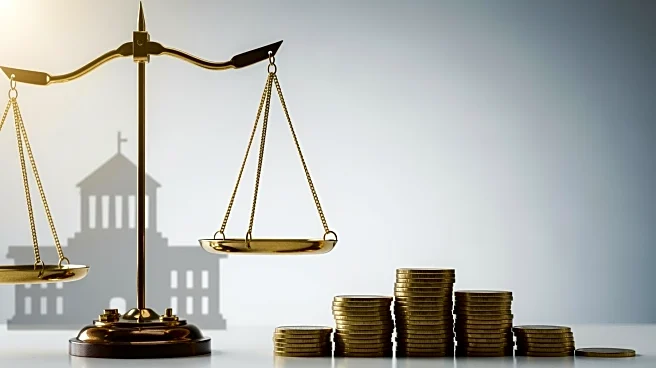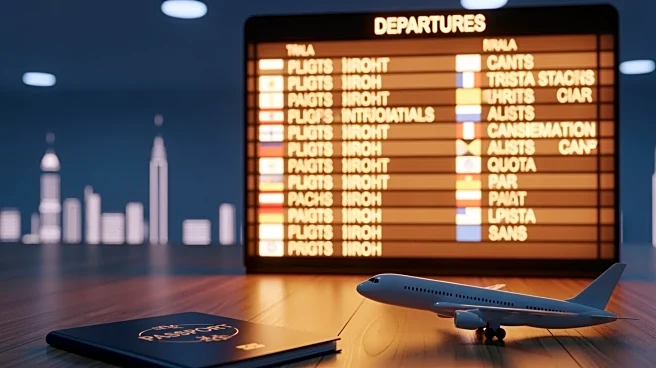What's Happening?
The Supreme Court recently heard oral arguments in a significant case concerning tariff refunds, which could potentially lead to tens of billions of dollars being returned to businesses. The Trump administration's efforts to maintain existing tariffs
faced skepticism from both conservative and liberal justices. The federal government has collected nearly $90 billion in revenue from these tariffs, according to US Customs and Border Protection data. Justice Amy Coney Barrett questioned the complexity of the reimbursement process, highlighting the potential challenges in determining eligibility for refunds. Neal Katyal, representing small- and medium-sized businesses, acknowledged the difficulty in the process, suggesting that only the businesses he represents might be automatically eligible for refunds. Other businesses may need to file separate appeals to lower courts to claim refunds.
Why It's Important?
The outcome of this case could have significant implications for U.S. businesses, particularly importers who have been affected by the tariffs. A ruling against the Trump administration could lead to a substantial financial windfall for businesses, potentially easing the economic burden imposed by the tariffs. However, the complexity of the reimbursement process could pose challenges, requiring businesses to navigate legal and administrative hurdles to secure refunds. Investment banks have been offering deals to importers, allowing them to sell their potential refund stakes at a discount for immediate cash, highlighting the financial stakes involved. The decision could also impact future tariff policies and the broader trade landscape, influencing how tariffs are implemented and challenged in the future.
What's Next?
If the Supreme Court rules against the Trump administration, businesses may need to engage in a complex administrative process to claim refunds, potentially involving liquidation extensions or protests with US Customs and Border Protection. The decision could take months, and businesses may need to update payment details or file specific claims to receive refunds. The ruling could also prompt investment banks to adjust their strategies, as they have been actively brokering deals with importers. The broader trade policy implications could lead to changes in how tariffs are applied and contested, influencing future trade negotiations and economic strategies.
Beyond the Headlines
The case raises ethical and legal questions about the fairness and transparency of tariff policies and their impact on businesses. The potential for refunds highlights the need for clear and equitable processes in trade policy, ensuring that businesses are not unduly burdened by complex and opaque systems. The involvement of investment banks in brokering deals for potential refunds underscores the financial pressures faced by importers and the broader economic implications of tariff policies. The case could lead to long-term shifts in trade policy, influencing how tariffs are implemented and challenged in the future.
















